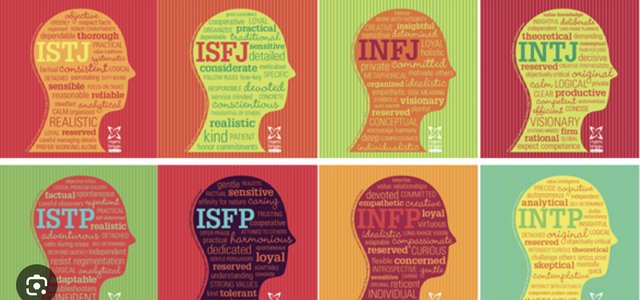ISFP Personality and PeoplePleasing: How to Stop Putting Others First and Start Prioritizing Yourself

People-pleasing is a common struggle, but for ISFP personalities (Adventurers), it’s often a deeply ingrained pattern. Imagine this: you’re at a coffee shop, and the barista enthusiastically recommends a seasonal drink. Despite knowing you’d prefer your usual latte, you nod along, not wanting to dampen their excitement. Later, as you sip the overly complex drink, you wonder why it’s so hard to simply say, “Thanks, but I’ll stick with my usual.”
For ISFPs, these moments aren’t random—they’re part of a broader tendency to prioritize others’ feelings over their own. While this behavior may stem from kindness, adaptability, or a desire to avoid conflict, it can lead to anxiety, exhaustion, and a diminished sense of self. So, how can ISFPs break free from people-pleasing and start prioritizing their own needs? Let’s explore the roots of this behavior and uncover actionable strategies to help ISFPs reclaim their authenticity.
Understanding the ISFP People-Pleasing Pattern
ISFPs are known for their emotional sensitivity, adaptability, and quiet demeanor. These traits, while valuable, can create a perfect storm for people-pleasing. According to ProMbti’s “People-Pleasing” survey, 79% of ISFPs admit to prioritizing others’ needs above their own.
At the heart of this tendency lies their remarkable Emotional Intelligence. ISFPs don’t just observe others’ emotions—they feel them deeply. When a friend’s smile fades or a coworker’s excitement wanes, ISFPs internalize that disappointment, making it difficult to assert their own preferences.
Their natural adaptability also plays a role. Like water conforming to its container, ISFPs often unconsciously adjust their preferences and behaviors to align with those around them. In fact, 57% of ISFPs report agreeing with others even when they hold a different opinion—the highest percentage among all 16 personality types.
Additionally, ISFPs often struggle to verbalize their needs. This can lead to a pattern of quiet acquiescence, where they nod along in conversations while their true thoughts remain unspoken. Turbulent ISFPs (ISFP-T) may face an added layer of worry about others’ opinions, making self-advocacy feel particularly daunting.
3 Strategies to Stop People-Pleasing
Breaking free from people-pleasing doesn’t mean abandoning your sensitive, adaptable nature. Instead, it’s about channeling these qualities into healthier relationships—with yourself and others. Here are three strategies tailored to help ISFPs reclaim their authenticity:
Strategy #1: Find Your Voice with Those You Trust
As an ISFP, expressing your true feelings can feel risky. Start by practicing authenticity with people who already appreciate you for who you are. Look for individuals who:
Respond with warmth when you open up
Show genuine interest in your perspectives
Make space for your true nature
Never rush you to respond
Appreciate your unique worldview
Begin small. Share your honest opinion about plans or let them know when you need alone time. Notice how it feels when they accept your feelings without judgment. Over time, you’ll see that being true to yourself doesn’t have to be scary.Strategy #2: The Art of Setting Kind but Clear Boundaries
Your emotional intelligence is a gift, but it doesn’t have to hold you back from expressing your needs. Use your awareness of others’ emotions to set boundaries in a way that maintains connections. For example:
Instead of forcing yourself to join weekend plans, say, “I’m touched you want me there. I need some quiet time this weekend, but I’d love to catch up next week.”
When declining a work project, say, “I’m honored you thought of me. To give my best to current projects, I need to decline.”
When disagreeing with an idea, say, “I appreciate your thoughts. I see things differently—would you like to hear my perspective?”
These responses acknowledge others’ feelings while gently expressing your needs, honoring both your care for others and your right to set boundaries.Strategy #3: Protect Your Freedom to Flow
ISFPs thrive when they have space to follow their natural rhythms. Instead of filling your calendar to please others, keep it intentionally spacious. When someone asks for your time, try responses like:
“That sounds interesting—let me see how my energy feels that day.”
“I’ll check my schedule and get back to you tomorrow.”
“I need to leave that day open for now, but I’ll check in closer to the date.”
This strategy isn’t about avoiding commitment—it’s about prioritizing your natural rhythm so you can show up fully present and energized.
Final Thoughts
Breaking free from people-pleasing is a gradual journey, not an overnight transformation. Start small, be patient with yourself, and celebrate the moments when you successfully honor your own needs.
Think back to the coffee shop scenario. Imagine smiling warmly at the barista and saying, “Thanks for the suggestion, but I’ll stick with my usual.” The barista’s world wouldn’t crumble, and your kindness wouldn’t disappear. You’d simply be adding yourself to the equation.This journey is about small moments of choosing yourself, one authentic decision at a time. When you bring your genuine self to the world, everyone benefits from the unique magic that only you can offer.
We’d love to hear from you! What’s your biggest challenge when it comes to putting yourself first? What small wins have you celebrated along the way? Let’s create a space where ISFPs can support each other in prioritizing their wants and needs.




